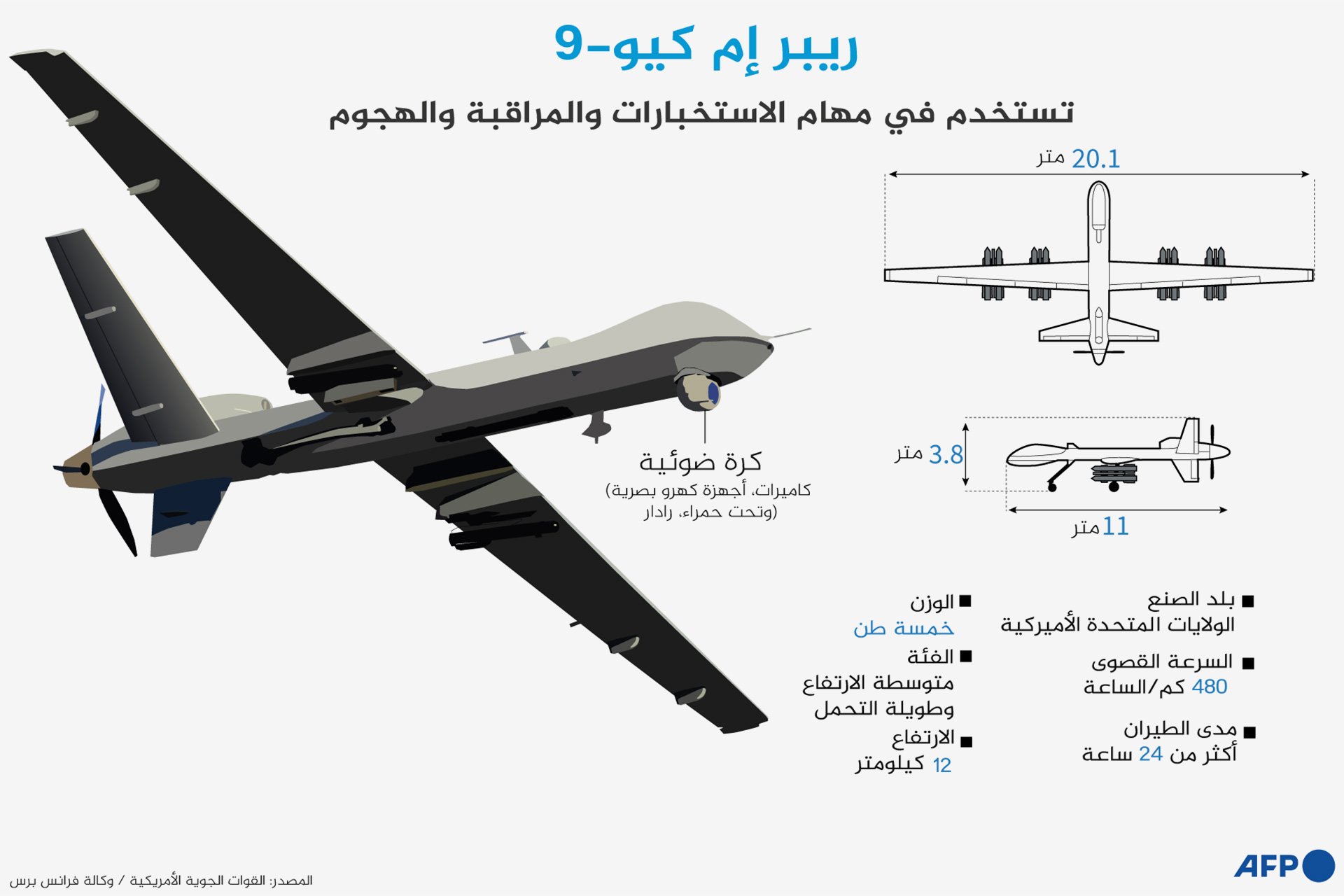The American newspaper The Hill talked about 5 observations that it described as essential regarding the incident of intercepting and shooting down an American drone by a Russian fighter jet in the Black Sea last Tuesday, and summarized them as follows:
First, what happened was rare
The United States intercepts Russian fighter jets several times a year in the so-called Air Defense Identification Zone, which covers international airspace outside the United States and Canada. Russian fighter jets have also been intercepting U.S. and NATO aircraft in the Black Sea in recent years.
However, the attack on the Reaper MQ-9 march two days ago was particularly troubling to Washington compared to previous objections, with National Security Council spokesman John Kirby calling it "worthwhile because it is insecure and unprofessional."
Second: America and Russia did not recover the march
Neither the Americans nor the Russians may be able to take back the march because, as Kirby put it, it has sunk into "very deep waters." But Russia, according to Security Council Secretary Nikolai Patrushev, is seeking to pull it out of the sea.
Third: Russia accuses the United States of provocation
Moscow believes that the American march carried out a sharp maneuver and crashed on its own in the Black Sea, and the Russian Defense Ministry criticized the United States for its activity near the Crimea region, which Moscow illegally annexed from Ukraine in 2014, but the United States refused to recognize this annexation.
Fourth: The United States says it will continue its patrols
The newspaper reported that the United States had conducted reconnaissance missions over the Black Sea for more than a year, before the Russian war on Ukraine, and highlighted in this context what US Defense Secretary Lloyd Austin said that the incident will not deter the United States from continuing to act where international law allows.
Fifth: Escalation fears exist
Tensions between the United States and Russia have reached their highest point since the Cold War, escalating after Russia's annexation of Crimea in 2014, escalating further after Russia's interference in the 2016 U.S. election, and then dramatically worsening after Moscow's all-out war on Ukraine last year.

